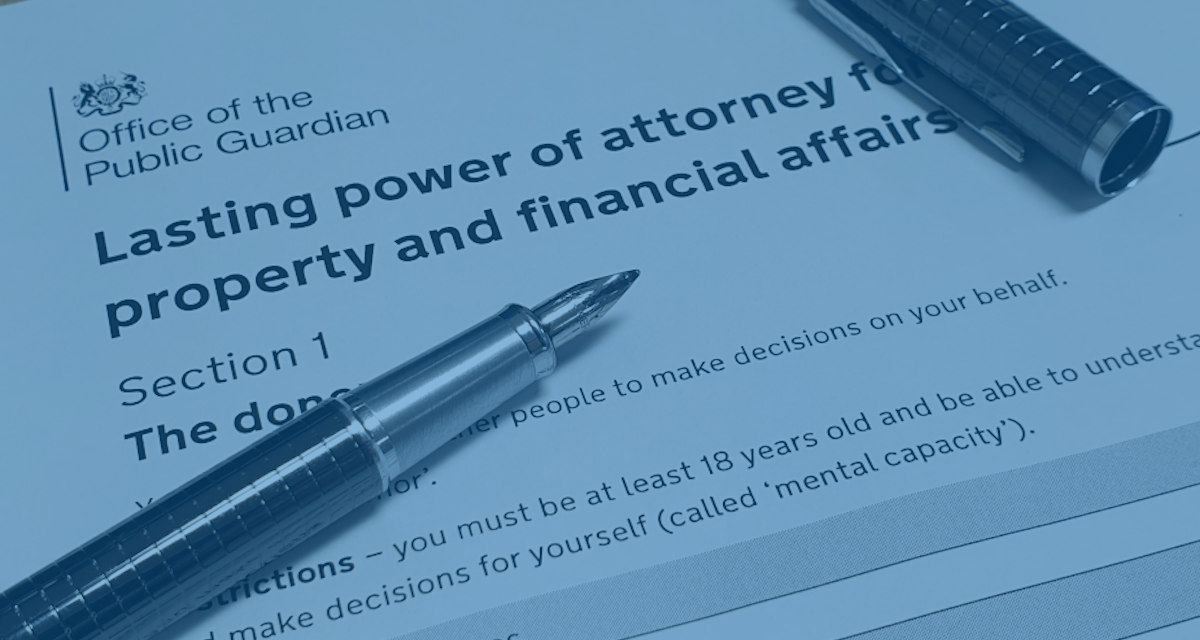Our free April 2021 CPD on using instructions and preferences in a Property and Financial Affairs Lasting Power of Attorney is now live in the partner area of the WillPack website. The article below is an extract of the CPD.
Any WillPack partners who completed the January CPD have been automatically enrolled into the April CPD. The CPD is available for free to any WillPack partner who has joined or submitted work in the previous 12 months. If you have not enrolled and wish to do so please email [email protected].
Gifting by Attorneys
What counts as a gift can be broader than the attorneys simply using the donor’s money to buy another person something or giving money or other possessions. Gift giving can also include allowing someone to live rent free at the donor’s property, selling assets for under their market value, creating a trust for someone else over the donor’s property or making interest free loans.
Subject to instructions saying otherwise, attorneys of a Property and Financial Affairs LPA have a power to make the following gifts under S12 Mental Capacity Act (MCA) 2005:
- Gifts to charities that the donor may have given to; and
- Gifts to family members, friends or acquaintances of the donor on ‘customary occasions’.
A customary occasion for this purpose means occasions where is it usual for gifts to be given, for example a birth, a birthday, a wedding/civil partnership, an anniversary or religious holidays. Gifts to family members, friends and acquaintances outside of a customary occasion are not within an attorney’s powers.
Attorneys do not have powers to make gifts beyond these powers. If attorneys wish to make a gift beyond the authority provided for in the LPA, they would need to apply to the Court of Protection.
The attorneys’ powers may be restricted by including in the LPA restricting what type of gifts the attorneys can make, for example instructions could be included to state:
- The attorneys must make no gifts.
- The attorneys must make no charitable gifts and all current gifts to charity must cease.
- Gifts can only be made to certain family members, for example to children and grandchildren.
- Gifts are only to be made on certain occasions, for example only at Christmas and on birthdays.
Gifting by Attorneys – reasonable gifts
Any gifts made by attorneys must be reasonable in regard to all circumstances but in particular the size of the donor’s estate. The MCA 2005 does not include a definition of what is reasonable or unreasonable as this will vary from case to case. The OPG’s PN7 and OPG2 guidance to attorneys and deputies gives some points that an attorney needs to consider when deciding if a gift is reasonable.
Attorneys must consider the impact of the gift on the donor’s financial situation. The attorneys must consider the donor’s current and future income and assets and the donor’s current and future needs. It should be considered whether the donor’s income covers their usual spending and will continue to do so in the future and whether the gift could affect that.
It must also be considered whether the gift would be in the donor’s best interests. This is not necessarily the same as asking if the donor would have made that gift if they had capacity to do so. The attorneys would need to consider factors such as:
- did the donor previously give gifts of this value when they had mental capacity?
- would the gift affect the donor’s ability to meet their living expenses, now and in the future?
- what is the donor’s life expectancy – and will they have enough funds for the remainder of their life?
- the possibility of the donor needing to pay for care costs in the future.
- whether the gift reflects what the donor has said they want to leave to people in their will or whether it may interfere with this.
- the impact of inheritance tax on the donor’s death.
The list is not exhaustive and there may be other factors which are relevant.


 © Trust Wills & Probate Limited t/a WillPack. All rights reserved.
© Trust Wills & Probate Limited t/a WillPack. All rights reserved.
You must be logged in to post a comment.